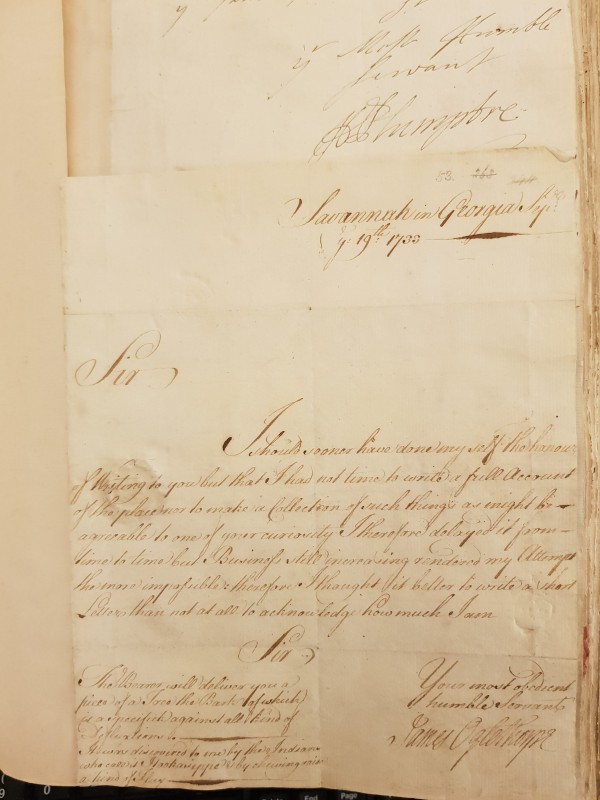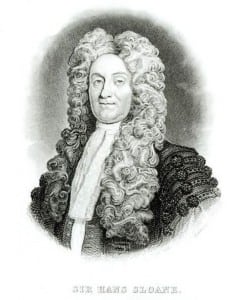James Edward Oglethorpe to Hans Sloane – September 19th 1733
Item info
Date: September 19th 1733 Author: James Edward Oglethorpe Recipient: Hans SloaneLibrary: British Library, London Manuscript: Sloane MS 4053 Folio: f. 53
-
Language
English
-
Library
British Library, London
-
Categories
Collections, Medical
-
Subjects
America, Amerindians, Bark, Plant samples, Plants
-
Date (as written)
September 19th 1733
-
Standardised date
September 19, 1733
-
Origin (as written)
Savannah in Georgia
-
Others mentioned
-
Patients mentioned
Original Page

Transcription
(fol. 53r) Savannah in Georgia Septr ye 19th 1733 Sir I should sooner have done my self the honour of Writing to you but that I had not time to write a full Account of the place nor to make a Collection of such things as might be agreeable to one of your curiosity I therefore delayed it from time to time but Business still increasing rendered my Attempt the more impossible: therefore I thought it better to write a short Letter than not at all to acknowledge how much I am
Sir
Your most obedient
humble Servant
James Oglethorpe
The Bearer will deliver you a piece of a Tree the Bark of which is a specific against all kind of Defluxion. It was discovered to me by the Indian who call it Hookawsippe & by chewing raise a kind of Flux.Oglethorpe apologizes for not writing sooner but he was trying to get an adequate collection of plants together and it was taking some time. He notes at the bottom that someone will be delivering a bark that works against all kinds of ailments that “was discovered to me by the Indians who called it Hookawippe & by chewing made a kind of Slury.”
James Edward Oglethorpe, (1696-1785) Commander in Chief of the Forces in Carolina and Georgia. Founder of the colony of Georgia, born in London on 22 December 1696. After a lifetime of active army service throughout Europe he proposed a new military American colony as a buffer to the southern Spanish ones. The new colony would function as soldier-farmers. He left for Georgia on October 1732 and operated as a paternalistic authoritarian and stirred up discontent for stunting Georgia’s economic development (by prohibiting slavery). (Betty Wood, Oglethorpe, James Edward (1696-1785), Oxford Dictionary of National Biography, Oxford University Press, 2006 [http://www.oxforddnb.com/view/article/20616, acessed 13 August 2015])
Patient Details
-
Patient info
Name: N/A
Gender:
Age: -
Description
-
Diagnosis
-
Treatment
Previous Treatment:
Ongoing Treatment:
Response: -
More information
-
Medical problem reference






